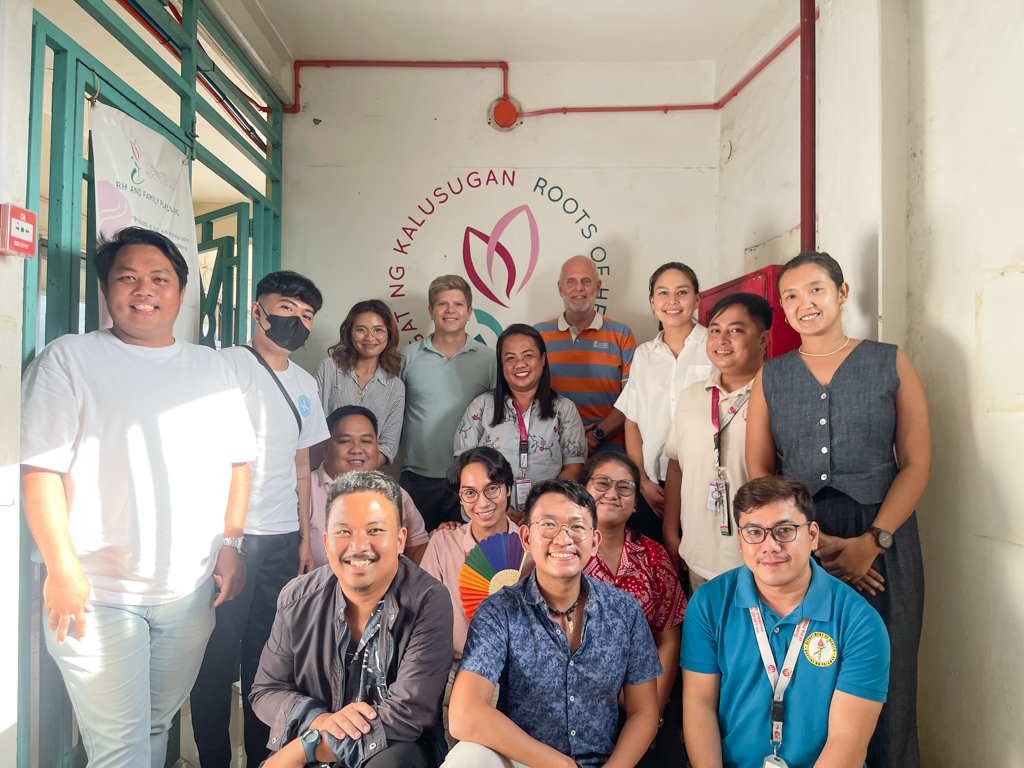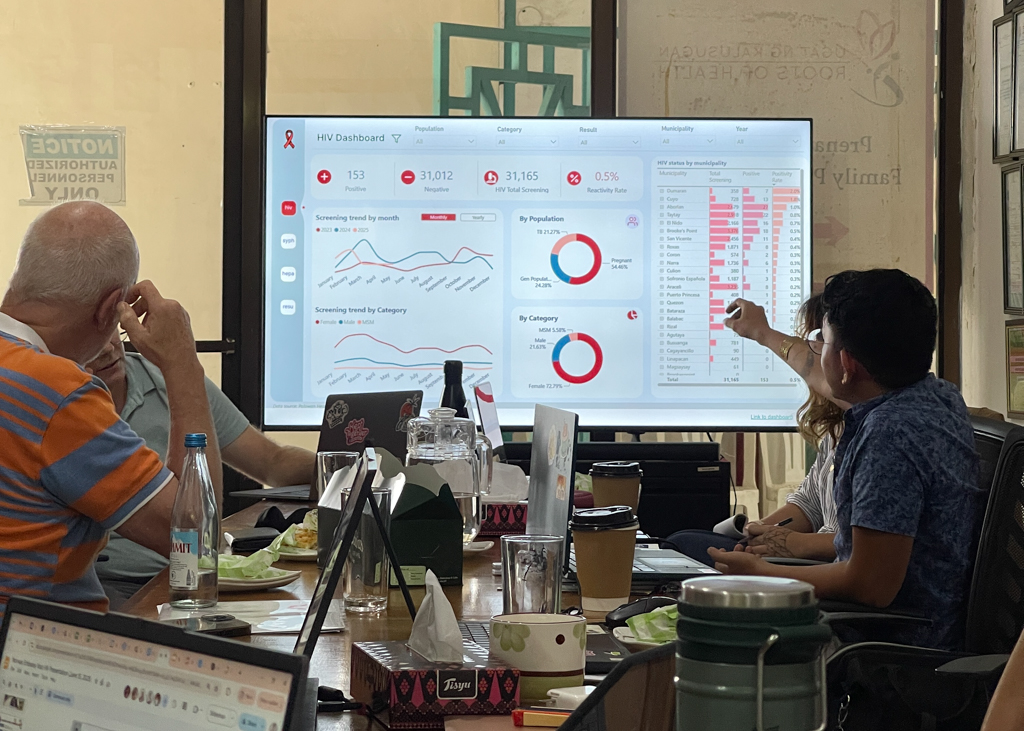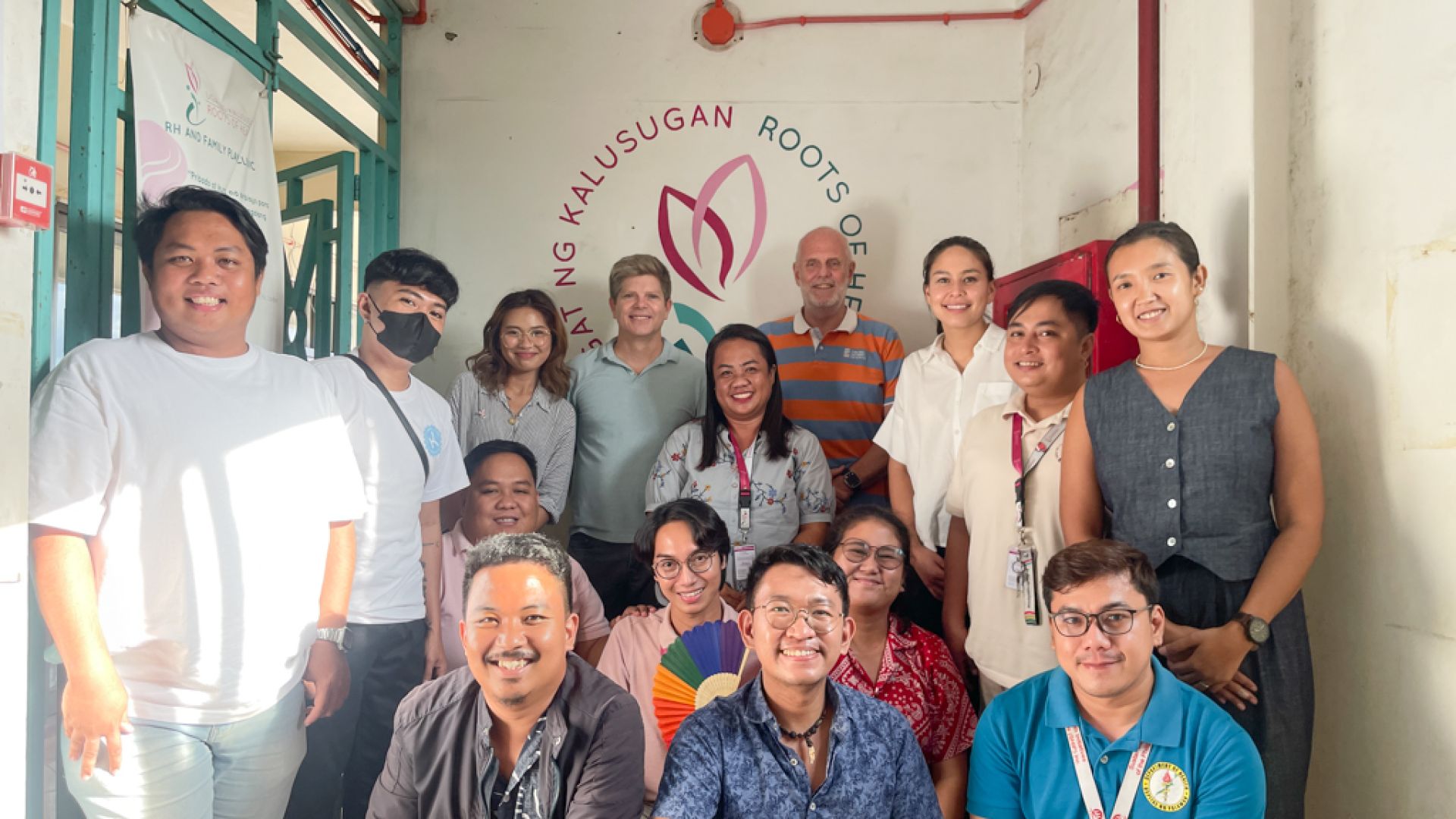Officials from the Royal Norwegian Embassy visited Roots of Health (ROH) in Puerto Princesa on June 15 to 16 to learn more about the organization’s expanding work in adolescent reproductive health and HIV prevention.
 The visit comes as the Philippines faces one of the fastest-growing HIV epidemics in the world.
The visit comes as the Philippines faces one of the fastest-growing HIV epidemics in the world.
The delegation was led by Deputy Ambassador Geir Michalsen, who oversees the Embassy’s development cooperation portfolio. He was joined by Second Secretary Maria Jensen.
The officials toured ROH’s two clinics and met with health workers, program managers, community-based partners, and youth volunteers to gain a deeper understanding of the organization’s ongoing programs.
Presentations highlighted the outcomes of ROH’s multi-year partnership with the Embassy, especially in expanding access to reproductive health services, and outlined ongoing strategies in responding to the HIV crisis in Palawan.
“We are honored to welcome the Norwegian Embassy to our clinics and show how their support has helped us reach more people with life-saving care,” said Marcus Swanepoel, Deputy Executive Director of Roots of Health. “Ending HIV won’t happen through silence or shame – it requires information, compassionate care, and investment in young people.”
Deputy Ambassador Geir Michalsen expressed pride in the Embassy’s long-term partnership with ROH.
“Norway is a global champion of sexual and reproductive health and rights (SRHR), pushing to accelerate access to SRHR, while also striving to safeguard the progress achieved so far. The Embassy is pleased to see how our support to ROH continues to make a meaningful impact. Their tireless efforts to address remaining gaps in Puerto Princesa and beyond are admirable, and the Embassy is proud to be a longstanding partner,” he said.
 The HIV epidemic in the Philippines
The HIV epidemic in the Philippines
Based on UNAIDS estimates, the Philippines now sees an average of 48 new HIV cases per day, marking a 411% increase in daily incidence from 2012 to 2023. While global HIV infections have declined steadily over the last two decades, the country is experiencing a sustained rise in new infections, with most cases attributed to sexual transmission. Men who have sex with men are disproportionately affected, though the risk to women is also increasing.
The Philippines has committed to global goals to end AIDS by 2030, which include diagnosing 95% of people with HIV, treating 95% of those diagnosed, and ensuring 95% of those treated have the virus under control. But the country remains far from these targets: only 59% know their status, 67% of those are on treatment, and just 48% have achieved viral suppression.
In Palawan and MIMAROPA, progress lags due to limited services, stigma and discrimination, weak surveillance systems, and a lack of youth engagement and comprehensive sexuality education.
Local action against a national crisis
Roots of Health tackles these gaps through a comprehensive community-based approach. Aside from providing clinical services, ROH has built a province-wide network of 225 condom dispensers in partnership with local governments. These are strategically placed in public health facilities and places frequented by young people, where anyone can get condoms for free.
The organization also trains Youth Advocates to lead peer education sessions, conduct community-based HIV screening, and distribute condoms. These efforts help normalize safer sex and early testing among young people.
Financial and psychosocial support for people living with HIV is a key part of ROH’s work. Clients from rural municipalities receive assistance for transportation, meals, accommodation so they can access care in Ospital ng Palawan (ONP) Red Top Center, the province’s HIV treatment hub. The organization also facilitates learning group sessions and refers clients to psychosocial services, recognizing that treatment adherence often hinges on more than just medical access.
Roots of Health has also invested in communication efforts to reduce stigma and misinformation. Its Facebook page “Keri Together” (Together, We Can), uses positive language to promote HIV awareness, link at-risk individuals to care, and create a supportive community.
During the visit, ROH’s local partners Tandikan Puerto Princesa, an LGBTQIA-led organization; Community for Positive Environment (COPE), a group of people living with HIV; and the ONP Red Top Center shared experiences supporting HIV prevention, treatment, and care across the province.
ROH has been working in Palawan since 2009 and has helped cut teen pregnancy in Puerto Princesa by more than 60% in six years. The organization is now expanding its services to other parts of the country, such as Mindanao, to address gaps in HIV prevention and reproductive health.



